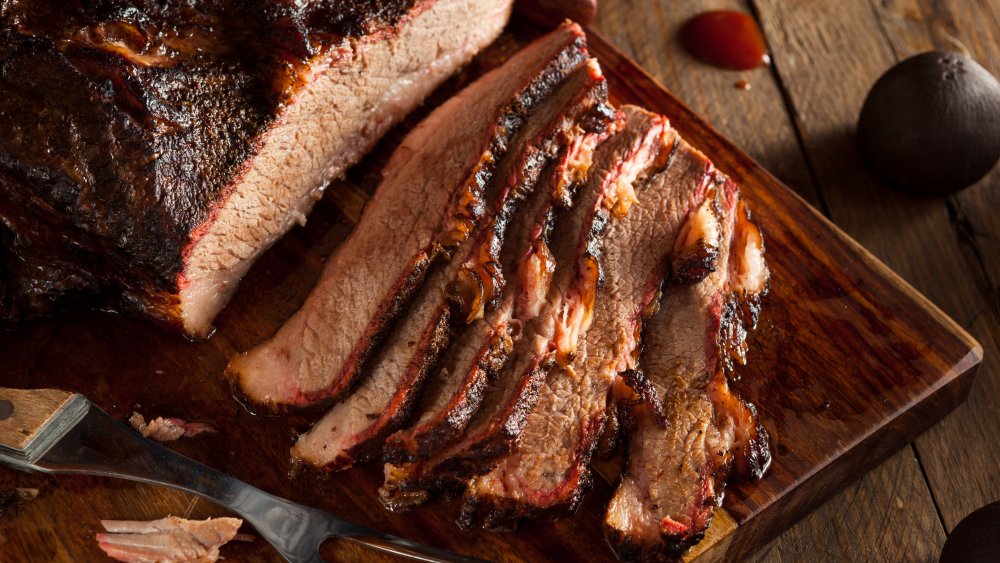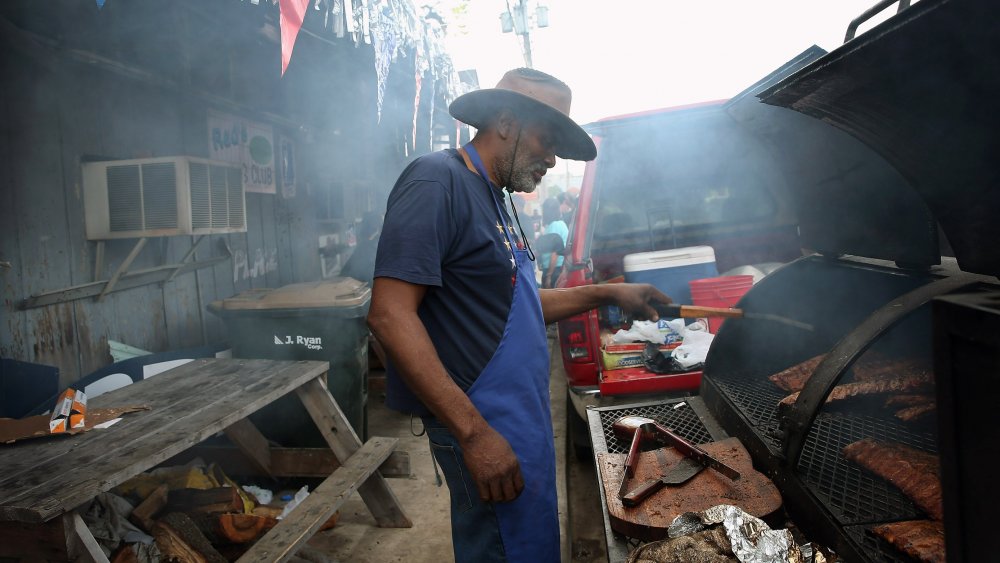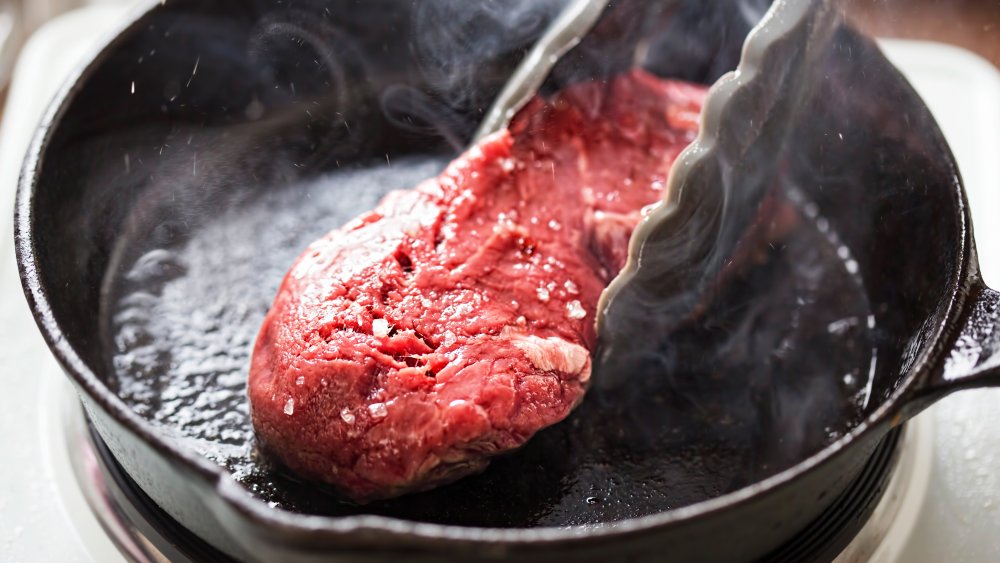How To Cook The Best Barbecue, According To Food Scientists
Good barbecue is definitely an art form, and whether you're talking about Korean barbecue, Texas barbecue, Kansas City barbecue, or North Carolina barbecue there are probably at least 1,000 opinions on how to do it properly — and ways you're probably messing it up.
That said, science can help us understand what makes for a good plate of barbecue and how to go about making sure your next batch of BBQ is done right. Guy Crosby might not have decades under his belt as a barbecue pitmaster, but he is a food scientist — so that's gotta count for something (via Vox).
First off, if you've opted for a marinade, you'll want to make sure that you're using one with plenty of salt. Unlike marinades that are heavy in vinegar or lemon juice, a salt-based marinade will better help to break down the meat's tissue to make for a more tender plate of meat. Acidic-based marinades just don't do this job nearly as well.
Patience from start to finish is key
Low and slow is the golden rule for barbecue pitmasters, especially when it comes to cooking standard favorites like ribs and brisket. As for why the low and slow rule is so crucial, Crosby says this is because the lower temperature means less shrinkage of the meat's fibers and better breaks down the proteins. The less those fibers shrink, the more moisture they retain — which is essential unless you want a dry, chewy plate of ribs.
It's also important that once the cooking process is finished, you allow the meat to rest before digging in. Crosby says this is because, during the cooking process, those juices are pushing outward from the center of the meat and if you slice into it too early, all the juices will run out. Barbecue pitmaster Big Moe Cason suggests sitting the brisket in a dry cooler, or even wrapping it in some dry towels to rest. "As its cooling, it'll start working its way back towards the center of that meat," Cason said (via YouTube). "That is the crucial point to making great brisket."
Serious Eats even noted how cutting into a steak too early without letting it rest can result in a 2 percent moisture loss. That might not seem like much, but your taste buds will notice.
Searing meat isn't locking in the moisture
Grilling a steak or pork chop isn't technically barbecuing, but we can still apply some science to make sure the next time you fire up the grill you don't mess it up. One thing you'll probably want to avoid is the urge to sear the meat. Food author Harold McGee says that searing meat is the "biggest myth in cooking." It doesn't create a barrier on the surface of the meat that prevents moisture from escaping — in fact, it might actually dry it out (via Tasting Table).
So then what's the point of searing? Chefs will sear a piece of meat because of the Maillard reaction, which basically means to brown the meat through caramelization. Searing doesn't lock in the moisture, but it does alter the simple sugars and amino acids to create a delicious crust on your steak.
If done improperly though, you're likely to do more harm to your cut of meat than flavor-enhancing good.


